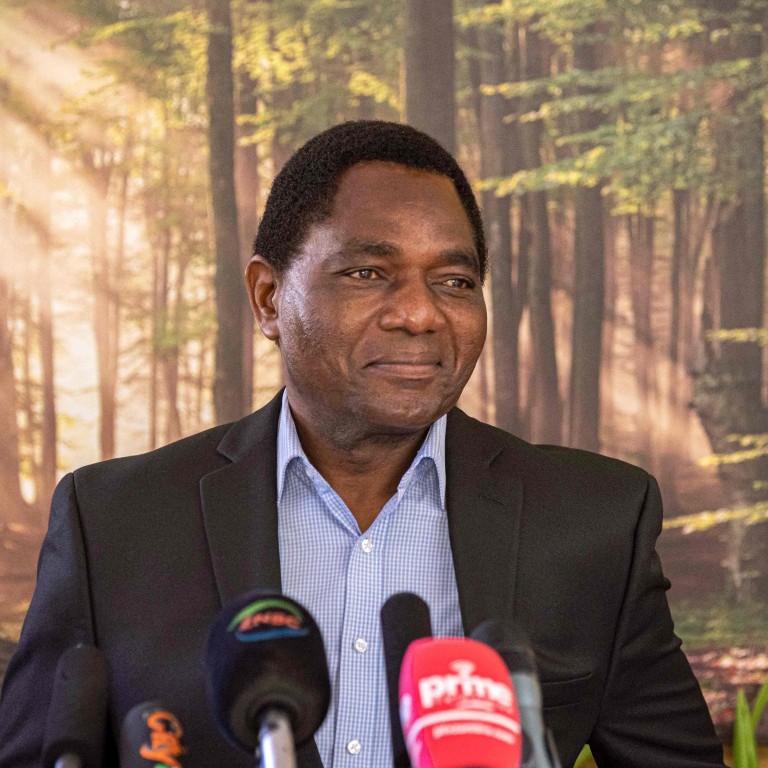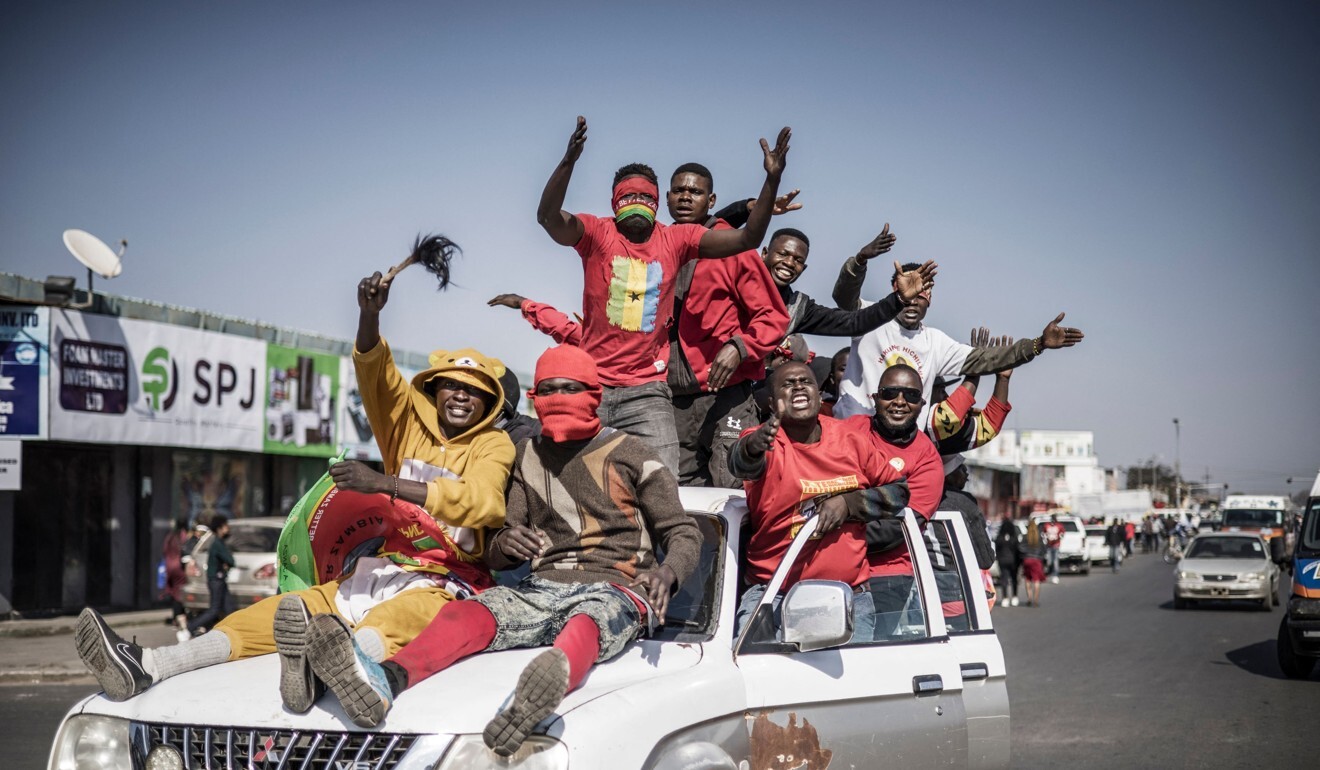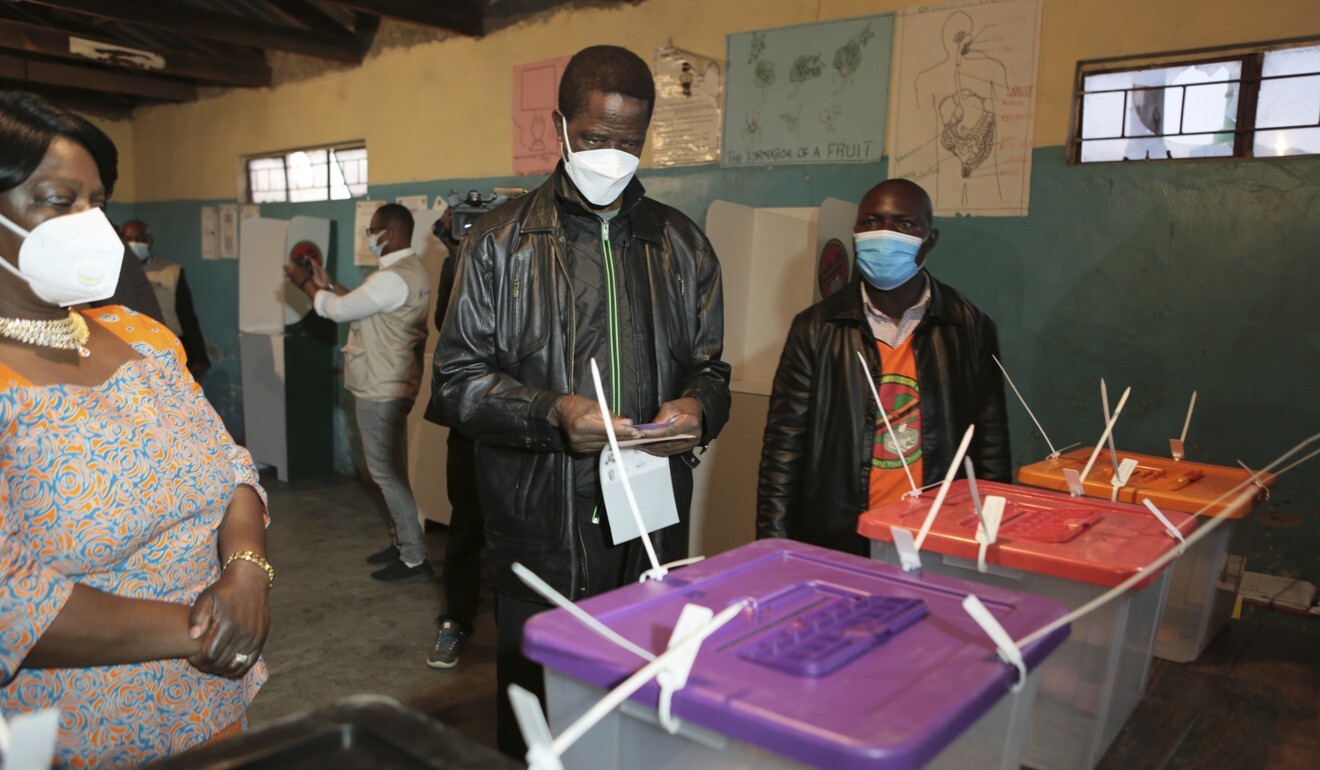
Zambia’s election winner expected to push for 20 per cent cut in country’s debt to China
- Hakainde Hichilema’s landslide victory over President Edgar Lungu may herald a new approach to Chinese investment in the heavily indebted African nation
- The victor reined back his criticisms of Beijing’s practices on the trail, but will need its main creditor’s help as he tries to rebuild the economy
Earlier this year he said a 20 per cent reduction would be a reasonable starting point for negotiations, saying “there has to be a haircut. It has to be equitable.”
The president-elect – who promised investor-friendly policies, better debt management and “zero tolerance” for corruption – was declared the winner on Monday, beating incumbent Edgar Lungu with more than 60 per cent of the vote.
But he inherits an economy in financial ruins after it became the first African country to default on a debt repayment in the pandemic era. Last year, the country’s GDP contracted by 3 per cent – Zambia’s worst performance in more than a quarter of a century.

China possesses a third of Zambia’s national debts, estimated at about US$3 billion, but some analysts have said Lusaka could be hiding the true extent of its exposure.
China advanced US$9.85 billion between 2000 and 2019, which made Zambia the third biggest African recipient of Chinese loans after Angola and Ethiopia, according to the China Africa Research Initiative at Johns Hopkins University.
Virag Forizs, an Africa economist at London-based consultancy Capital Economics, said creditors are facing significant losses in debt restructuring talks.
The call for an “equitable” debt haircut “points to an attempt to share the burden of losses across creditors. Achieving that may prove difficult if China, which holds around 30 per cent of Zambia’s external debt, plays hardball,” Forizs said in a note to clients.
Forizs said Lusaka’s “public debt-to-GDP ratio leapt under President Lungu’s tenure from 66 per cent of GDP in 2015 to 113 per cent last year amid an infrastructure drive.”
Zambia has been a key Chinese partner in Africa, but its relationship has come under strain when opposition politicians have tried to exploit anti-Chinese sentiment.
During the 2006 election campaign Michael Sata warned against giving away Zambia’s sovereignty. But when elected president five years later, he changed his tune and allowed Beijing to continue to fund key infrastructure projects. Sata died in 2014 with Lungu taking over as president.

In 2018, Hichilema urged China to go slow in funding Lusaka’s expansionist spending but was questioned by police after claiming that the government had sold a state-run timber company to Chinese interests, prompting protests that led to the looting of some Chinese businesses.
In what was seen as a change of tune, in August that year, Hichilema wrote to the Chinese embassy saying his United Party for National Development would “work hard to strengthen the friendship between our two nations” if it won the election.
However, he continued to warn that the country’s debts to China “had brought about major socio-economic problems.”
Zambia, Africa’s largest producer of copper, has become heavily dependent on capital from China, which has funded a string of major infrastructure projects across Africa.
Stand-off with Chinese creditors threatens to deepen Zambia debt crisis
In the run-up to the election, Lungu staged a series of events highlighting Chinese investments, including two new airports and a hydropower plant.
Mark Bohlund, a senior analyst at REDD Intelligence in London, said that historically China’s first reaction to debtor countries running into trouble has been to extend the debts’ maturity.
But he said: “I think in the case of Zambia, the consensus among creditors is that haircuts on the debt will be needed. A 20 per cent haircut on the Eurobond debt is probably below what the IMF is likely to end up at in a debt-sustainability given that the Eurobond is among the costliest to service and is ranked below bilateral and other official debts in seniority.”
He said Hichilema is likely to want to maintain good relations with China but intends to run a more balanced fiscal policy with less recourse to borrowing.
“Moreover, China is likely to be more cautious in its lending to Zambia following a debt restructuring and source a higher degree of its copper imports from neighbouring Democratic Republic of Congo,” Bohlund said.
No evidence of China’s ‘debt-trap diplomacy’, researchers and analysts say
But it also wants to use a new “common framework” that will allow China and the G20 countries to coordinate their discussions on restructuring Zambia, Ethiopia and Chad’s debts – the first time China would be holding multilateral debt negotiations.
Tim Zajontz, a research fellow from the Centre for International and Comparative Politics at Stellenbosch University in South Africa, said that the incoming government cannot expect blanket debt relief from China or any other lenders and the new government was likely to take a pragmatic approach.
“It seems likely that Chinese banks will concede further requests for debt rescheduling to avoid further public controversies, as both sides have a keen interest to start off on the right foot,” Zajontz said.
Zambia largest recipient of Chinese loans for military purchases, study says
He said Zambia will continue to tout for Chinese and other foreign investments. “But the times of debt-financed public spending sprees are over. It is likely that under Hichilema, privatisation of state assets and public infrastructure will accelerate with the aim of creating short-term revenues for the state coffers. Chinese investors stand ready to enter public-private partnerships in Zambia,” he said.
Charles Robertson, global chief economist at Renaissance Capital, an emerging and frontier markets investment bank, said that China will be buying Zambian copper for decades.
He said Eurobond investors will want to be treated the same as China and other creditors. “China’s loans are often tied to using Chinese companies (such as to build airports), so China has already made profits from these loans and can afford to take a haircut – but they may not see it this way. The debt talks will be difficult,” Robertson said.

